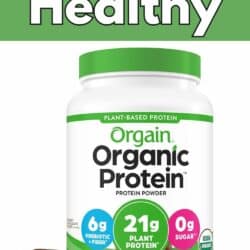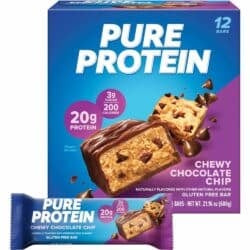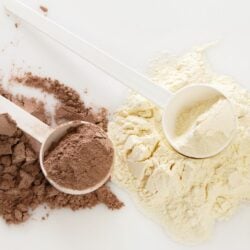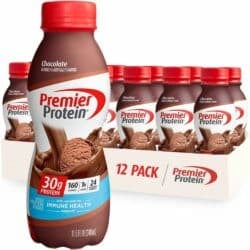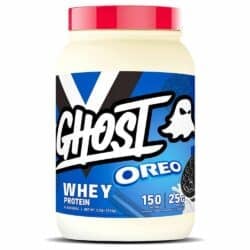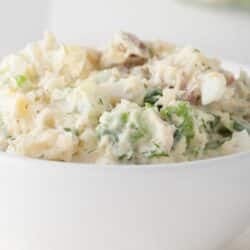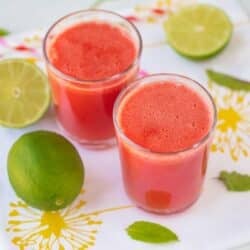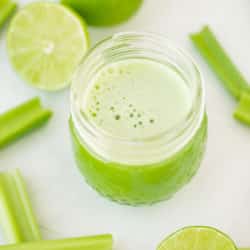Is Orgain Protein Healthy (Nutrition Pros and Cons)?
In this blog post, I’ll review the question of whether Orgain Protein is healthy or not. Find out this product’s nutrition pros and cons and some better options to consider.
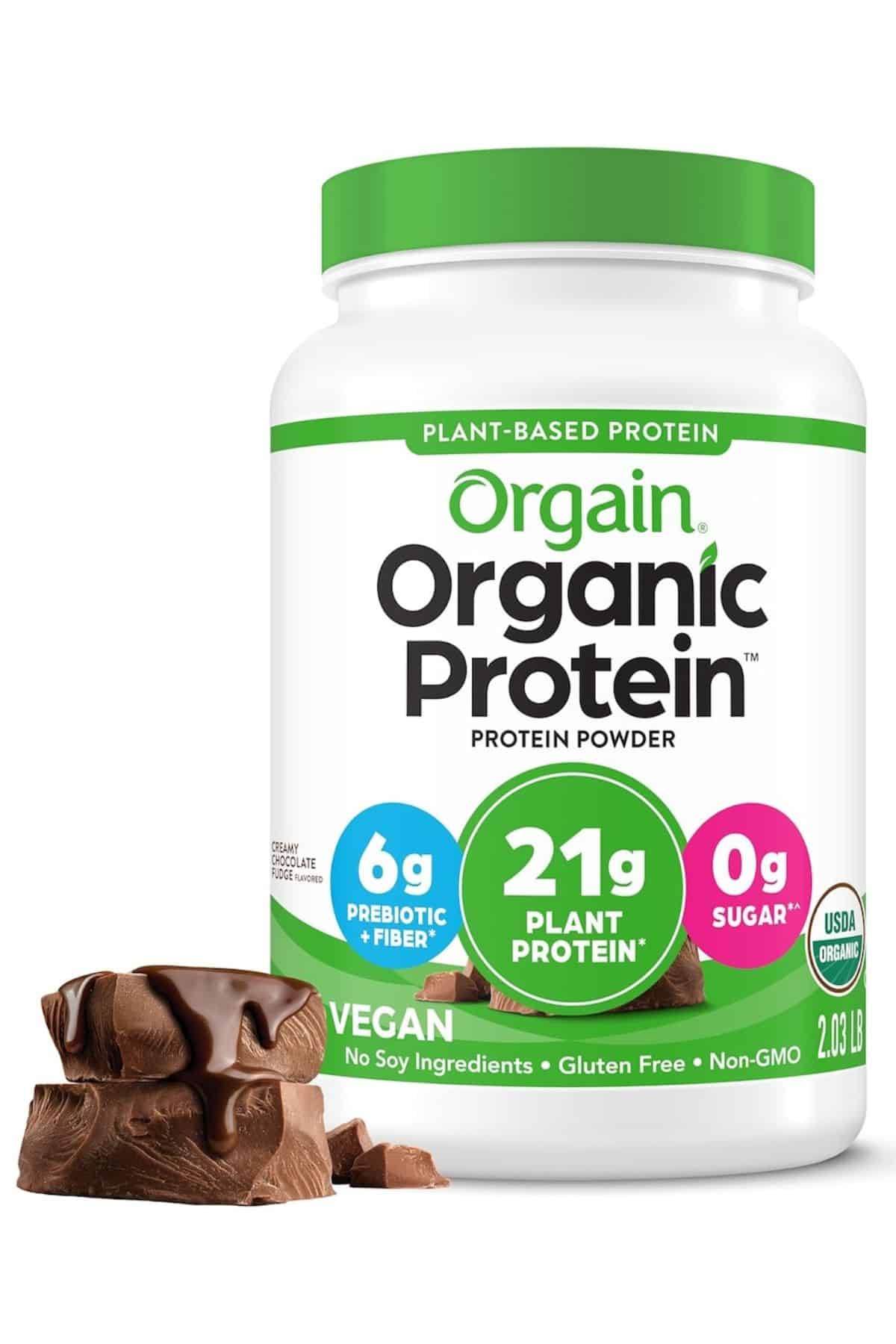
Orgain Protein Facts
Orgain Protein is a range of protein products made by Orgain, a company founded in 2009 by Dr. Andrew Abraham, M.D., an integrative medicine specialist and cancer survivor.
He created his protein-based shakes, powders, and snacks based on his belief that everyone deserves good, clean nutrition. He has a very inspiring story which can be heard on the podcast, How I Built This.
Most Orgain products are certified organic, gluten-free, non-GMO, kosher, and made without soy or artificial ingredients.
Orgain plant-based protein powders come in different flavors, including Pumpkin Spice, Fruity Cereal, Churro Caramel Swirl, Peppermint Hot Cocoa, Chocolate Peanut Butter, Vanilla Horchata, Chocolate Caramel Sea Salt, and Cookies’ n Cream. The protein bars are available in Chocolate Brownie, Chocolate Chip Cookie Dough, Peanut Butter Chocolate Chunk, Peanut Butter, S’Mores, and Chocolate Coconut.
Orgain protein powders, protein shakes (meal replacement shakes) and bars contain a variety of different ingredients. The protein bars and most protein powders are vegan and kosher, but some protein powder flavors include animal products such as whey or collagen.
Orgain’s protein powders contain Orgain’s own organic protein blend containing organic pea protein, organic brown rice protein, and organic chia seed. Orgain protein powder flavors may also contain other ingredients such as organic high oleic sunflower oil, organic acacia, organic rice dextrin, sea salt, alkalized organic cocoa, and natural flavors.
Orgain Protein Ingredients
Let’s look at some of the main ingredients in Orgain Protein and how these ingredients may affect your health.
High Oleic Sunflower Oil
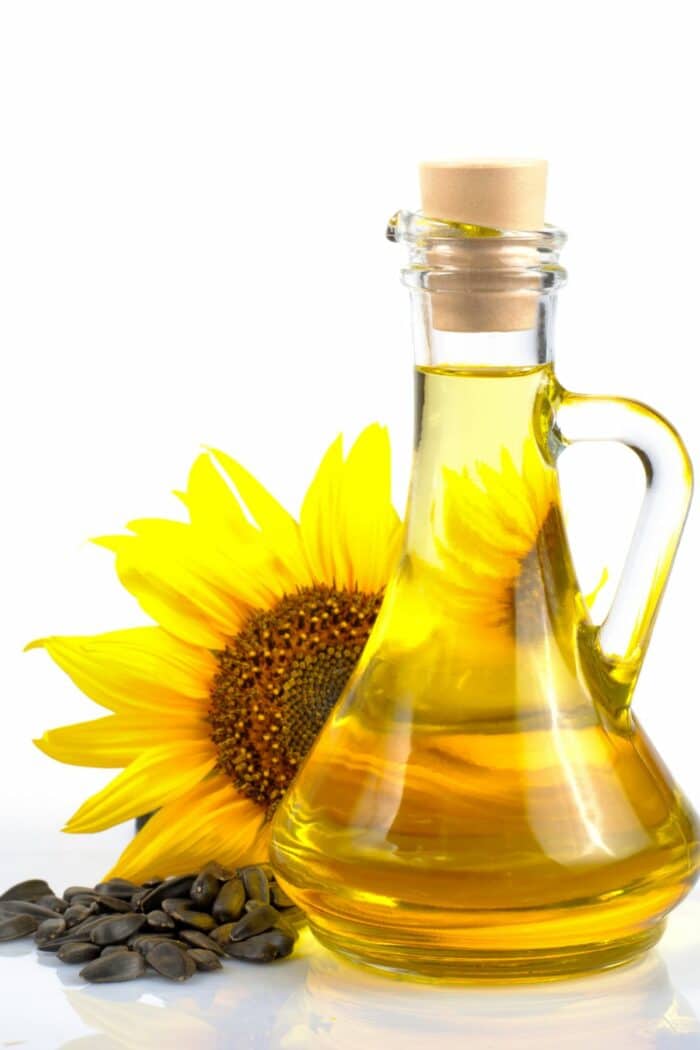
Orgain Protein Powders use high-oleic sunflower oil. Many manufacturing companies use this oil to keep food shelf-stable and preserve flavor.
High-oleic sunflower oil contains a high amount of monounsaturated omega-9 fatty acids. Monounsaturated fat or oleic acid, along with polyunsaturated fat, is considered one of the healthier fats and can help lower LDL or bad cholesterol.
Unlike other seed oils, sunflower oil is not considered an allergen for those sensitivities to seeds.
Despite these health and safety claims, sunflower oil is still a seed oil; health-conscious people may want to avoid this type of oil (see the safer oils to use in cooking).
Non-Nutritive Sweeteners
Erythritol
Orgain’s protein bars and protein powders contain erythritol.
Erythritol is a sugar alcohol that contains zero calories, has no nutritional value, and has no effect on glucose or insulin levels. It occurs naturally in some foods and is manufactured as a by-product of fermented wine, beer, and cheese. It is a by-product of corn or wheat starch fermentation.
Research has found that consuming sugar alcohols like sorbitol, mannitol, xylitol, and erythritol can cause digestive issues like gas and cramping and even has laxative properties. Although some people believe that erythritol is a much better sugar alcohol, it depends on how sensitive you are to sugar alcohols.
Stevia Leaf Extract

Stevia Leaf Extract is a processed non-nutritive sweetener that can be up to 400 times sweeter than regular sugar. It has some health benefits; for example, it may help lower cholesterol, and according to research, it can help combat certain types of cancer.
However, stevia may adversely affect your health. One study found that even small amounts of stevia could disrupt the gut microbiome.
It’s also important to note that people who are sensitive to sugar alcohols may want to also avoid stevia because it can cause digestive distress.
Natural Flavors
There is a lot of conflicting information about the term “natural flavors” in food labeling. Because the term has no official definition, food manufacturers can use it to describe nearly any additive or food product.
It’s worth noting that some so-called “natural flavors” are produced using artificial products and processes, such as enzyme-assisted extraction, that may use solvents and high heat.
Unless a company reveals its production methods, it’s impossible to know whether the natural flavors used in the product are healthy or have any nutritional value.
Guar Gum and Xanthan Gum
Guar Gum
Also called guaran, guar gum is a thickening agent extracted from guar beans used in food product production. Guar gum has fiber and may improve digestion and help lower blood sugar and cholesterol.
Some people may have an allergic reaction or experience digestive issues like gas and bloating.
Xanthan Gum
Xantham gum is a substance produced by either bacterial fermentation or created synthetically and is used in foods as a thickening agent.
While xantham gum is perfectly safe to consume as an additive in food products, it is worth noting that too much can cause digestive issues.
Superfoods Blend
Most Orgain protein powders and bars are made using their own unique superfood blend, Orgain Organic Protein Blend™. It consists of organic pea protein, brown rice protein, and chia seeds.
Organic Pea Protein
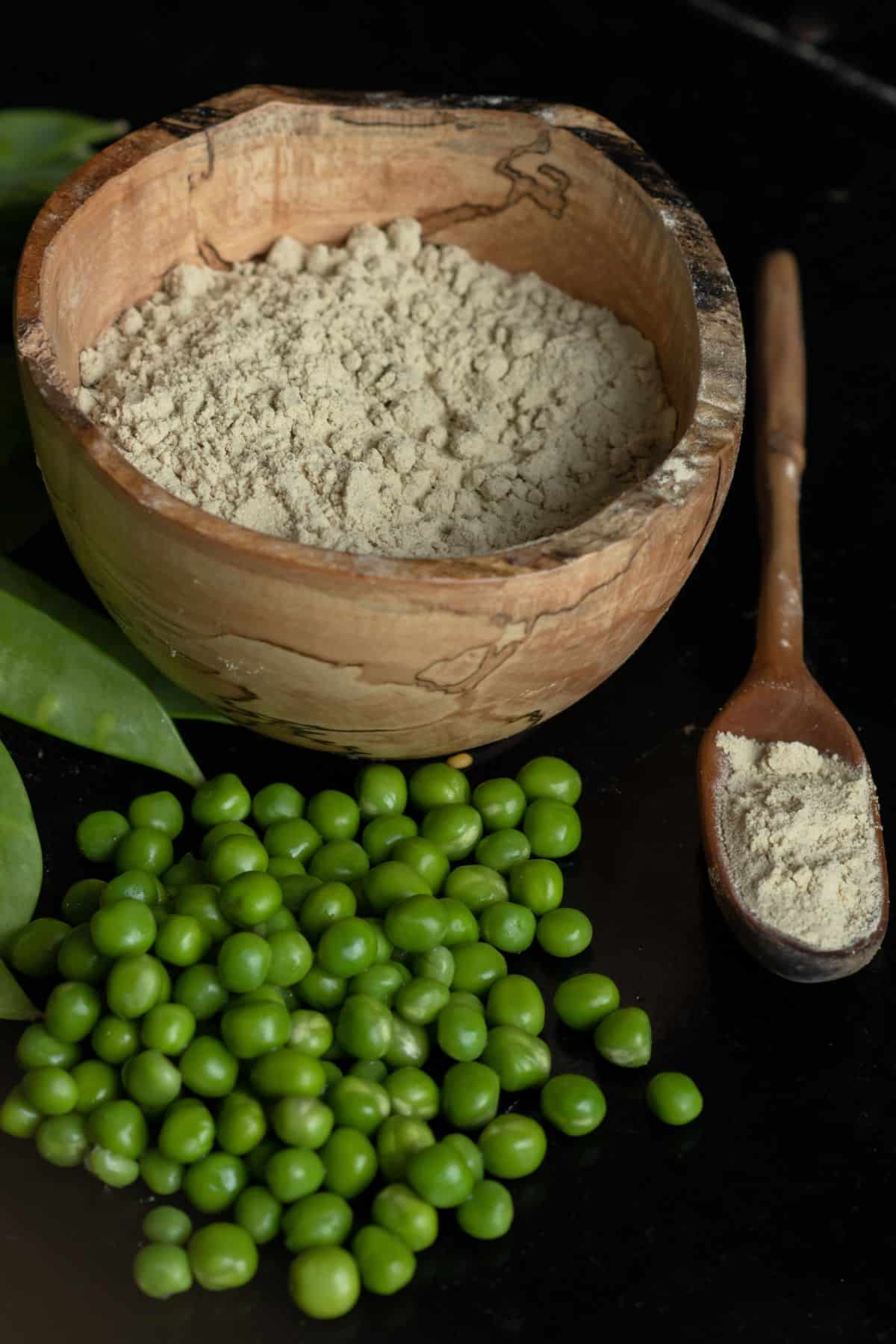
Pea protein is a high-quality plant-based protein extracted from yellow peas. It is typically used to increase the protein content of foods like protein powders and bars. Pea protein is rich in iron and suitable for vegans.
People with sensitivities to peas should avoid products with pea protein.
Organic Brown Rice Protein
Brown rice protein is a vegan high-protein source. It is derived from rice and has no known harmful side effects.
The only drawback that I can come up with for this particular ingredient is that rice can be contaminated with heavy metals.
Organic Chia Seeds
Chia seeds are high in protein and rich in fiber and antioxidants. However, chia seeds can cause allergic reactions or digestive distress in some people.
Nutrition Pros
Most Orgain Protein powders and bars are vegan, gluten-free, kosher, non-GMO, and use organic ingredients with no added sugar. These products are ideal for people who want a convenient high-protein snack that comes in a wide range of flavors.
The protein powders are high in protein, ranging from 10 to 30 grams of protein per serving, and the protein bars contain 10 grams of protein per serving. These types of products can help increase your protein intake which can facilitate weight loss.
These organic protein powders do not contain artificial sweeteners or artificial flavors which is a plus. You may also like my list of the best unsweetened paleo protein powders.
Orgain organic protein powder and the nutritional shakes do contain all of the essential amino acids.
Nutrition Cons
Although many of the ingredients in the Orgain Protein powders and bars are organic and non-GMO, they do include some highly processed ingredients in most of their formulas, such as guar gum, xantham gum, high-oleic sunflower oil, and sugar alcohols like stevia extract and Erythritol. These ingredients may cause digestive distress in some people.
Some Orgain protein powders contain whey protein and collagen and are unsuitable for vegans. The protein bars and some of the protein powders contain nuts. People with allergies to nuts, dairy, or animal products should avoid taking these products or at least take special care to read the labels.
Lastly, this product is considered a fairly processed product. For a healthy lifestyle, try to stick to clean, unprocessed foods as much as possible.
Nutrition FAQs
Some of the Orgain Protein products contain allergens such as dairy and nuts and should be avoided by people with food allergies to these ingredients. People may also experience digestive issues from certain ingredients including stevia or erythritol.
Orgain Protein Powders and protein bars are either sweetened with stevia or erythritol, neither of which should affect glucose or insulin levels. Although most of the protein products are vegan, kosher, and dairy-free, some of the products contain tree nuts, collagen, and dairy and may not be suitable for a vegan diet or people with nut or dairy allergies.
Don’t Miss These Protein Reviews!
Conclusions
Orgain Protein Powders and protein bars are organic, non-GMO, and gluten-free, and most of the products are vegan, kosher, and have no added sugars. They are somewhat healthier than some other protein brands. However, they are a bit expensive and contain some highly processed ingredients that health-conscious people may want to avoid.
If you need protein supplements, consider products with fewer ingredients.
Don’t forget to join my newsletter list to get exclusive clean eating recipes and tips. The newsletter is 100% free with no spam; unsubscribe anytime.
About the Author: Carrie Forrest has a master’s degree in public health with a specialty in nutrition. She is a top wellness and food blogger with over 5 million annual visitors to her site. Carrie has an incredible story of recovery from chronic illness and is passionate about helping other women transform their health. Send Carrie a message through her contact form.
Note: this post is for informational purposes only and is not intended as medical advice. Please consult your healthcare provider for recommendations related to your individual situation.


